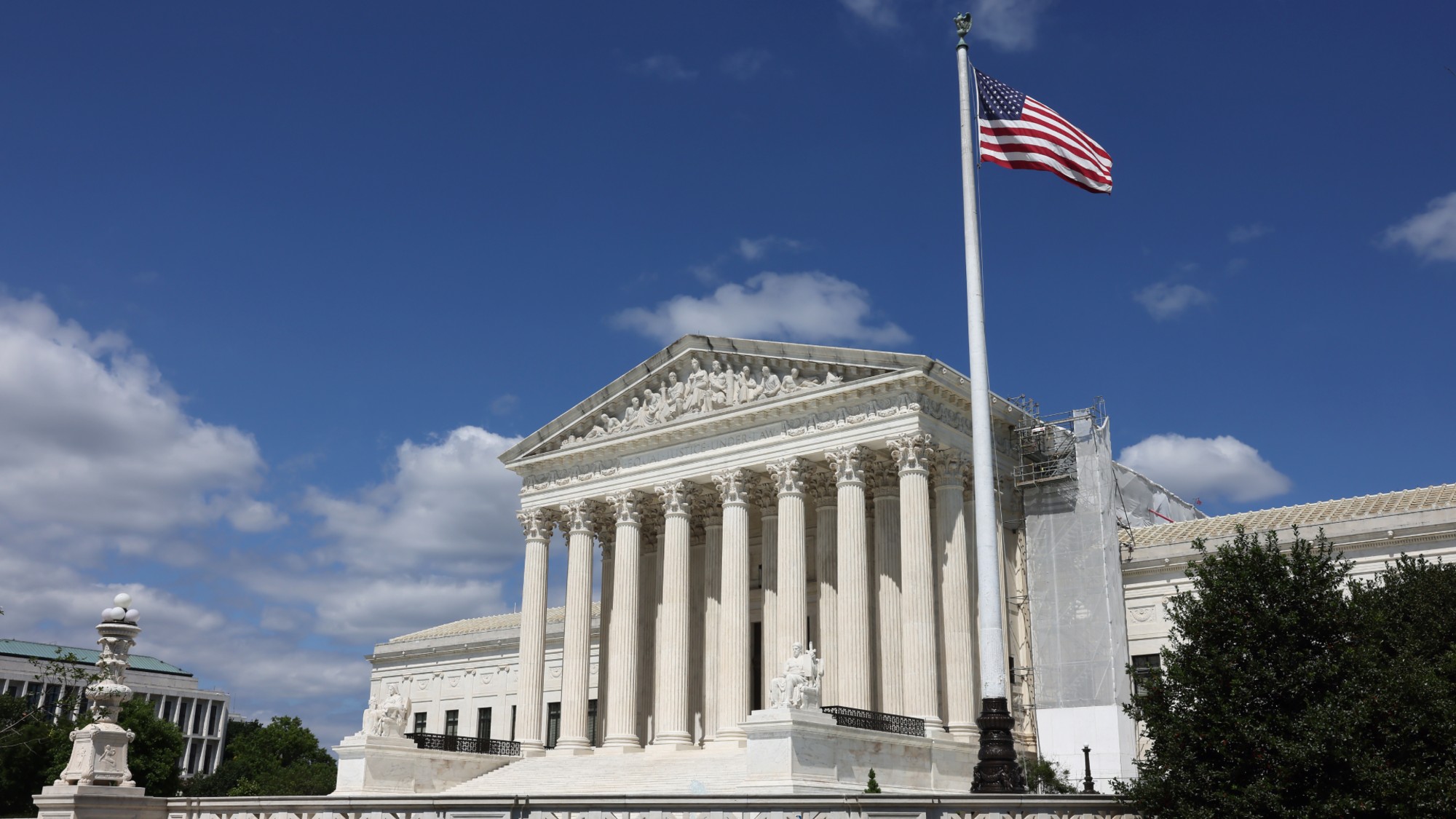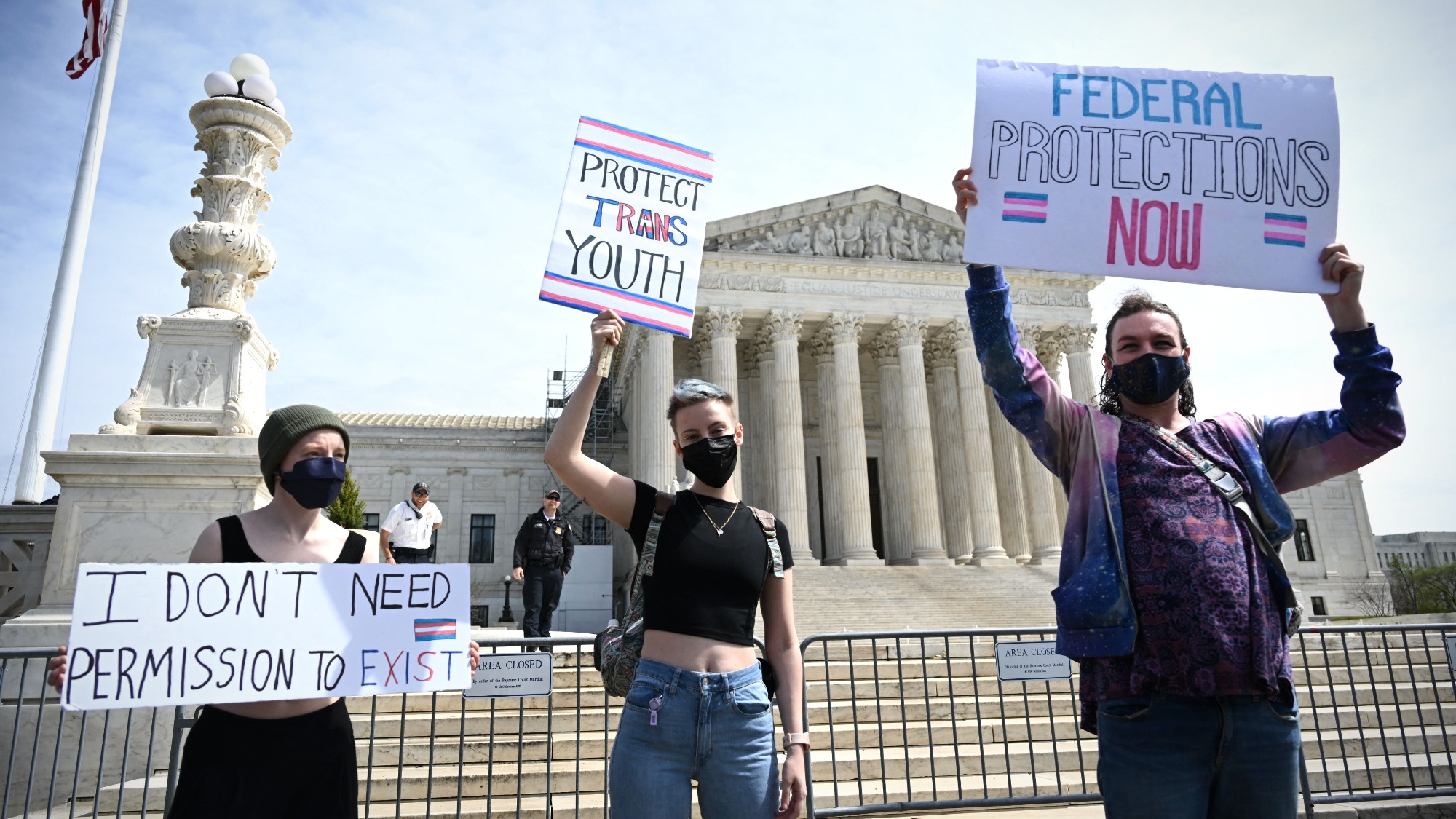How the fall of Roe v. Wade could change traveling for an abortion


A free daily email with the biggest news stories of the day – and the best features from TheWeek.com
You are now subscribed
Your newsletter sign-up was successful
The U.S. Supreme Court will hear a direct challenge to landmark ruling Roe v. Wade on Wednesday, this case regarding a Mississippi law that bans most abortions after 15 weeks of pregnancy.
So how might a decision overturning Roe affect the current landscape for abortion seekers and abortion rights advocates? For one thing, travel time for those in need of an abortion could increase dramatically.
Should protections under Roe v. Wade disappear, "the average American could have to travel around 125 miles to reach the nearest abortion provider, compared to the current average of 25 miles," Axios writes, according to the Myers Abortion Facility database.
The Week
Escape your echo chamber. Get the facts behind the news, plus analysis from multiple perspectives.

Sign up for The Week's Free Newsletters
From our morning news briefing to a weekly Good News Newsletter, get the best of The Week delivered directly to your inbox.
From our morning news briefing to a weekly Good News Newsletter, get the best of The Week delivered directly to your inbox.
What's more, Myers reports that "the percentage of people living over 200 miles away from a provider would increase from 1 percent to 29 percent," per Axios.
According to a complementary report from the Guttmacher Institute, individuals in southern and Midwestern states would have to travel hundreds of miles for abortion care, considering "12 states will immediately restrict abortion if Roe disappears, and others would be likely to impose significant new restrictions," reports Axios.
In Florida, for example, under a total abortion ban, the average one-way driving distance for those in need of an abortion would increase 6,803 percent to 575 miles. Currently, "people travel around 8 miles one-way to reach the closest provider," Axios writes. In Louisiana, residents would have to travel 666 miles one-way, as compared with a current approximate 37 miles.
And in large areas of the U.S., particularly in the center of the country, individuals with no options are already making a 250 to sometimes 350-mile drive to their nearest provider. Read more at Axios.
A free daily email with the biggest news stories of the day – and the best features from TheWeek.com
Brigid Kennedy worked at The Week from 2021 to 2023 as a staff writer, junior editor and then story editor, with an interest in U.S. politics, the economy and the music industry.
-
 Political cartoons for February 20
Political cartoons for February 20Cartoons Friday’s political cartoons include just the ice, winter games, and more
-
 Sepsis ‘breakthrough’: the world’s first targeted treatment?
Sepsis ‘breakthrough’: the world’s first targeted treatment?The Explainer New drug could reverse effects of sepsis, rather than trying to treat infection with antibiotics
-
 James Van Der Beek obituary: fresh-faced Dawson’s Creek star
James Van Der Beek obituary: fresh-faced Dawson’s Creek starIn The Spotlight Van Der Beek fronted one of the most successful teen dramas of the 90s – but his Dawson fame proved a double-edged sword
-
 How far does religious freedom go in prison? The Supreme Court will decide.
How far does religious freedom go in prison? The Supreme Court will decide.The Explainer The plaintiff was allegedly forced to cut his hair, which he kept long for religious reasons
-
 The Supreme Court case that could forge a new path to sue the FBI
The Supreme Court case that could forge a new path to sue the FBIThe Explainer The case arose after the FBI admitted to raiding the wrong house in 2017
-
 ABC News to pay $15M in Trump defamation suit
ABC News to pay $15M in Trump defamation suitSpeed Read The lawsuit stemmed from George Stephanopoulos' on-air assertion that Trump was found liable for raping writer E. Jean Carroll
-
 Judge blocks Louisiana 10 Commandments law
Judge blocks Louisiana 10 Commandments lawSpeed Read U.S. District Judge John deGravelles ruled that a law ordering schools to display the Ten Commandments in classrooms was unconstitutional
-
 Supreme Court to weigh transgender care limits
Supreme Court to weigh transgender care limitsSpeed Read The case challenges a Tennessee law restricting care for trans minors
-
 ATF finalizes rule to close 'gun show loophole'
ATF finalizes rule to close 'gun show loophole'Speed Read Biden moves to expand background checks for gun buyers
-
 Hong Kong passes tough new security law
Hong Kong passes tough new security lawSpeed Read It will allow the government to further suppress all forms of dissent
-
 France enshrines abortion rights in constitution
France enshrines abortion rights in constitutionspeed read It became the first country to make abortion a constitutional right
